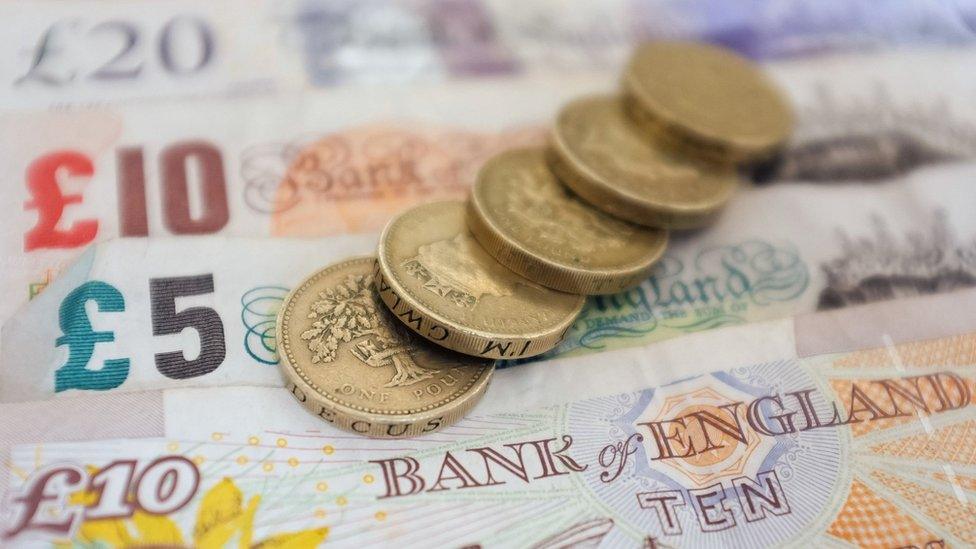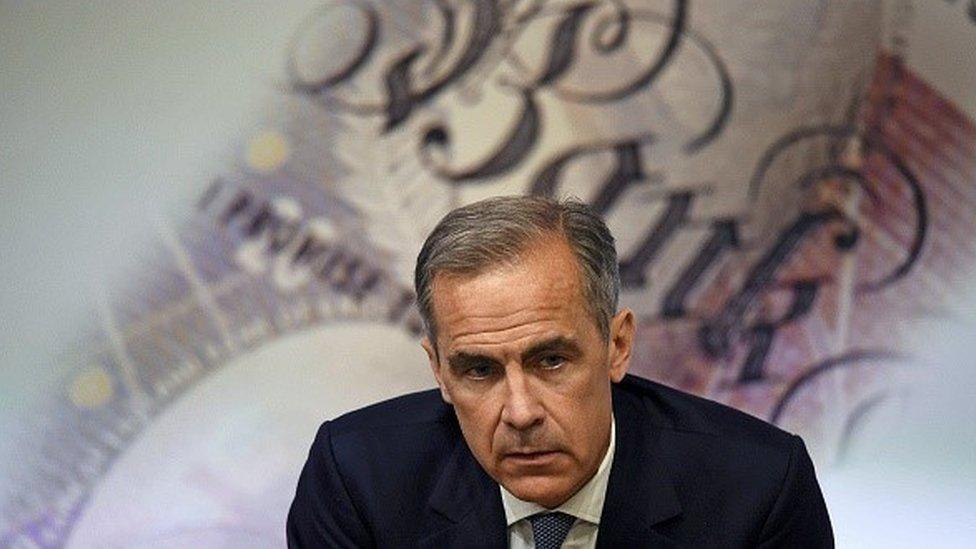Rate cut 'foregone conclusion' as economy slows sharply
- Published

The UK economy is contracting at its fastest rate since the financial crisis, making an interest rate cut "a foregone conclusion", according to financial data company Markit.
The Markit/CIPS purchasing managers' index , externalthat showed activity in the UK's dominant services sector saw its sharpest fall in seven years.
It follows falls in both construction and manufacturing in July.
The index fell from 52.3 in June to 47.4 in July, indicating contraction.
The figure confirmed an earlier initial estimate of service sector output.
Taken together with the manufacturing and construction data, Markit said a cut in interest rates by the Bank of England - expected following Thursday's meeting of the Monetary Policy Committee - was a foregone conclusion.
Policymakers are widely expected to reduce rates from the current 0.5% to a new low of 0.25%.
Earlier, economic think-tank the National Institute of Economic and Social Research (NIESR) said the country would go through a "marked economic slowdown" this year and next.
But it stopped short of forecasting a recession, saying the chances of the UK economy suffering a downturn in the next 18 months were 50/50.
It says inflation will also pick up, rising to 3% by the end of next year.


Analysis: Kamal Ahmed, BBC economics editor:
For those hunting for poor economic data since the referendum result, today's purchasing managers' index for the crucial services sector certainly provides significant pickings.
And it builds on pretty poor figures from the construction and manufacturing sectors.
It is now clear from the data that has been published that economic activity slowed markedly in the weeks following the referendum.
Of course, part of that is down to uncertainty about the shape of the economy as the UK negotiates its way out of the European Union.

Markit said incoming new business volumes fell for the first time since the end of 2012.
The pace of contraction was comparatively sharper than that seen for total business activity, and the fastest since March 2009, it added.
Moreover, companies widely reported the outcome of the EU referendum had weighed on new business inflows during the month.

Chris Williamson, Markit's chief economist, said the service sector data taken together with the construction and manufacturing data pointed to the UK economy shrinking by 0.4% in three months to September, a fall not seen since early 2009, when the Bank last cut interest rates.
"The unprecedented month-on-month drop in the all-sector index has undoubtedly increased the chances of the UK sliding into at least a mild recession," he said.
Markit said it was too early to know if the PMIs would stay as weak as they are now, but it said confidence about the year ahead was at its lowest since February 2009 among firms in the services sector, which accounts for nearly 80% of UK economic output.
"A quarter-point cut in interest rates therefore seems to be a foregone conclusion, " Mr Williamson added, "though the extent and nature of other non-standard stimulus measures remains a far greater source of uncertainty."
- Published3 August 2016
- Published3 August 2016

- Published1 August 2016

- Published5 July 2016

- Published2 August 2016
